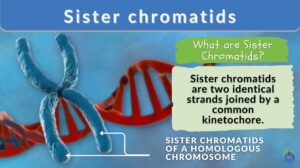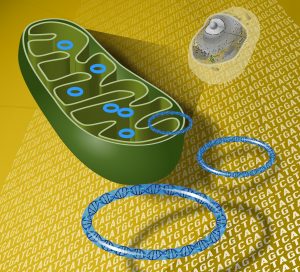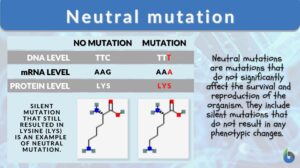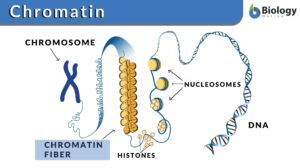Search Results for: fate
Differentiation
Differentiation in biology is the process where less specialized cells undergo changes to develop specialized structures and... Read More
Sister chromatids
Sister Chromatids Definition Sister chromatids are defined as the two identical copies of a single replicated chromosome... Read More
Determinate cleavage
Definition noun A type of cleavage on the basis of the potentiality of blastomeres in which the blastomeres (resulting from... Read More
Hypotonic solution
Hypotonic Solution Definition What is a hypotonic solution? It refers to a solution that contains a lower amount of solute... Read More
Cell determination
Definition noun The process in which a previously undifferentiated cell is already programmed to become a specific cell type... Read More
Cell differentiation
Cells are often described as the building blocks of life as they are the smallest unit used to build up organisms. Cells can... Read More
Transcriptional silencing
transcriptional silencing (Science: molecular biology) mechanism of transcriptional control where dNA is bundled into... Read More
Genetic drift
Genetic Drift Definition What is genetic drift in simple terms? The simple definition of genetic drift ( also referred to... Read More
Pyruvic acid
What is Pyruvic Acid? Pyruvic acid is an organic acid that occurs as an intermediate in many metabolic processes. It occurs... Read More
Unipotent cell
Definition noun The cell that has the ability to self-renew but gives rise to only one type of cell or tissue. Supplement An... Read More
Fibrinous exudate
What Is Fibrinous Exudate? Fibrinous exudate is a type of exudate (inflammatory fluid) that forms at the site of tissue... Read More
Hypermorphic mutation
Definition noun (genetics) A type of mutation wherein the change in gene leads to an increase in normal (wild-type) gene... Read More
Endomembrane system
Ever wondered how biomolecules are made within the cell and then they are released outside the cell for use by the body?... Read More
Men could go extinct? Y chromosome disappearing slowly
Hold on to your seats, gentlemen -- the male chromosome (Y chromosome) disappearing at a certain rate could absolutely be... Read More
Prokaryotic Ancestor of Mitochondria: on the hunt
The alphaproteobacteria have been widely cited as the closest relative-- and possibly the prokaryotic ancestor -- of the... Read More
Mitochondrial DNA – hallmark of psychological stress
We often hear that stress can be unsettling as it could make us ill when it becomes chronic and overwhelming. However, is... Read More
Neutral mutation
Neutral Mutation Definition What is a neutral mutation? Neutral mutations are the alterations in the DNA that are... Read More
Indeterminate cleavage
Definition noun A type of cleavage on the basis of the potentiality of blastomeres in which the blastomeres (resulting... Read More
Multipolar mitosis
Multipolar mitosis Abberant mitotic figures, where the chromosomal material is pulled to more than two poles. Multipolarity... Read More
Mosaic egg
mosaic egg (Science: biology) at one time a distinction was drawn between those organisms in which the egg seemed to have a... Read More
Y chromosome
Y chromosome Definition The Y chromosome constitutes one member of the pair of sex chromosomes within an organism, a common... Read More
Phagocytosis
Phagocytosis Definition Phagocytosis is a basic physiological cellular process wherein a cell ingests a solid particle... Read More
Endoplasmic reticulum
Endoplasmic Reticulum Definition The endoplasmic reticulum is a membrane-bound organelle in cells of eukaryotic cells... Read More
Parthenogenesis
To reproduce, by definition, means to produce new offspring. The process is referred to as reproduction, which is one of the... Read More


























